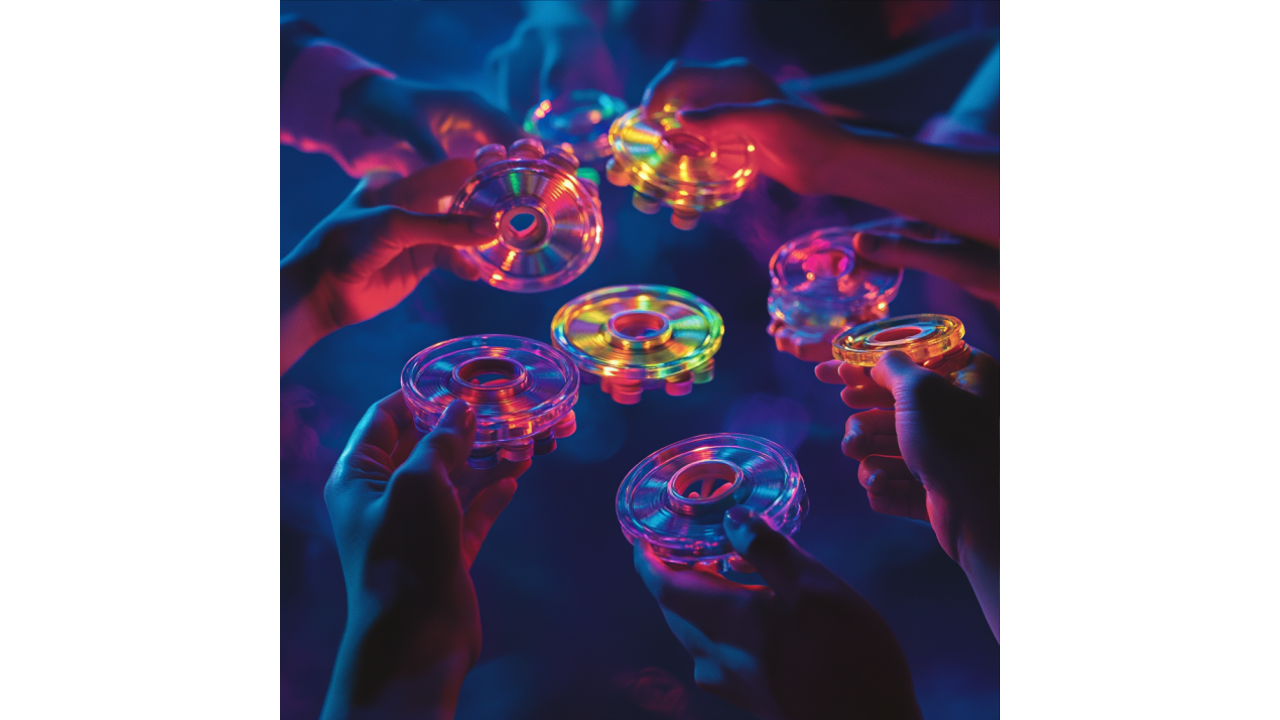Building Neurodivergent-Friendly Marketing Teams
Innovative solutions often come from diverse perspectives and unique ways of thinking. While many organizations focus on traditional diversity...
-3.png)
What if the most distinctive voices in comedy aren't who you think they are? While we chase viral moments and trending formats, we're missing something profound: 48% of creatives identify as neurodivergent—nearly double the general population rate of 31%. These minds don't just create differently; they laugh differently too.
Between 15 and 20% of the global population is neurodiverse, yet most marketing humor still follows neurotypical scripts. The cost is staggering: 71% of disabled customers with access needs will click away from a website if they find it difficult to use, representing £11.75 billion in UK spending power alone.
This isn't just about accessibility—it's about authenticity. When neurodivergent humor translates to marketing, it doesn't follow conventional comedic timing or setups. Instead, it offers something rarer: genuine surprise born from genuinely different perspectives.
Autistic humor operates on distinct principles. Students with autism preferred verbal nonsense jokes over incongruity-resolution jokes, gravitating toward wordplay that celebrates rather than subverts literal meaning. This preference reveals something marketers have overlooked: autistic individuals exhibit unique patterns of laughter, laughing genuinely when they find something funny rather than using laughter as a social cue.
Consider how Autistica's 2025 campaign used humor to dispel stereotypes, developed through close collaboration with autistic individuals. The work succeeded because it honored autistic comedic sensibilities—direct, observational, and refreshingly free of neurotypical social performance.
Read more about how authentic representation transforms brand messaging in our guide to inclusive marketing strategies.
ADHD brains can impulsively put random, seemingly unassociated items together in funny ways, creating comedic connections others miss entirely. This isn't accidental—it's systematic. Lateral thinking and joke creation share similar cognitive pathways, making ADHD minds natural comedy inventors.
The marketing implications are profound. When a person with ADHD becomes intensely focused on a topic, they can dive deep into its nuances, exploring every angle and finding humor in unexpected places. This hyperfocus creates comedy that's both deeply researched and wildly original.
Research from 2024 shows understanding humor, particularly dark humor, involves complex information processing, including high nonverbal and verbal intelligence—traits often associated with ADHD creativity.
Few brands have cracked the neurodivergent humor code, but those who have are reaping rewards. Liquid Death's twisted sense of humor represents "a satirical take on the world around us, mixing high-brow, thought-provoking ideas with low-brow humor"—an approach that resonates strongly with neurodivergent audiences who appreciate both intellectual depth and absurdist elements.
The company's $700 million valuation and massive social following prove neurodivergent-friendly humor isn't niche—it's the future. As their VP of Creative notes: "If you can make someone laugh, they're way more likely to purchase."
Meanwhile, brands like Hovia have partnered with autism organizations to create sensory-friendly products, demonstrating how understanding neurodivergent experiences translates to inclusive design.
Explore how sensory considerations impact brand perception in our analysis of neurodiversity in professional services marketing.
There's deeper wisdom here about how humor functions socially. The emotional sale typically has less hold on the neurodivergent consumer, according to advertising legend Rory Sutherland. This means neurodivergent humor often privileges cleverness over emotional manipulation—a refreshing change from sentiment-heavy marketing.
Consider the profound observation from autistic individuals about social scripts: "Social scripts are often pointless and boring. Why do we subject ourselves to them?" This questioning of social conventions creates humor that cuts through marketing noise because it's genuinely subversive.
The philosophical implications extend beyond comedy. As one expert notes: "The most progressive, counter-canonical ideas tend to come from those who live on the margins and even more so, those who 'think on the margins' as many neurodivergent people do."
Recent research reveals how neurodivergent humor challenges marketing assumptions. Autism In Entertainment partnered with The Laugh Factory to create neurodivergent-friendly comedy shows, featuring reduced music volume and private spaces for breaks. The success proved that accommodation doesn't compromise quality—it enhances it.
House 337's autism awareness campaign used humor strategically to dispel myths and tropes, proving that neurodivergent perspectives create more authentic and memorable messaging. The work succeeded because it recognized that autistic individuals often have rich and delightful humor that looks different but is equally valuable.
This represents a fundamental shift: from treating neurodivergence as something to overcome to recognizing it as a creative advantage. Many individuals with ADHD report experiencing sudden fits of laughter from rapid, humorous connections—exactly the kind of unexpected associations that make marketing memorable.
The data supports this approach: powerful creative can add 10 times, 20 times to performance, and neurodivergent-created content consistently outperforms traditional approaches in engagement metrics.
Marketing humor is entering a new era. Cannes Lions debuted a new category focused on honoring humorous contributions to advertising just as neurodivergent creators are gaining recognition. This timing isn't coincidental—it represents marketing's recognition that the funniest voices have been marginalized.
The bottom line: neurodivergent humor doesn't just add diversity to your content strategy—it fundamentally improves it. These minds create comedy that's smarter, more surprising, and more authentic than conventional approaches.
Ready to tap into neurodivergent humor for your brand? Winsome Marketing specializes in inclusive content strategies that connect with all audiences authentically. Our team understands how different minds create different magic—and how to translate that into marketing gold. Let's explore how neurodivergent perspectives can transform your brand voice.
-1.png)
Innovative solutions often come from diverse perspectives and unique ways of thinking. While many organizations focus on traditional diversity...

Your latest campaign generated impressive numbers: 4.2% click-through rates, 18% engagement lift, and conversion rates that exceeded industry...
-1.png)
While much has been said about inclusive marketing for various demographics, the unique needs and perspectives of neurodivergent individuals present...